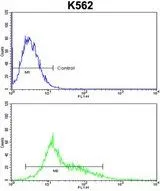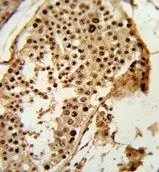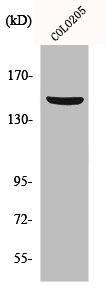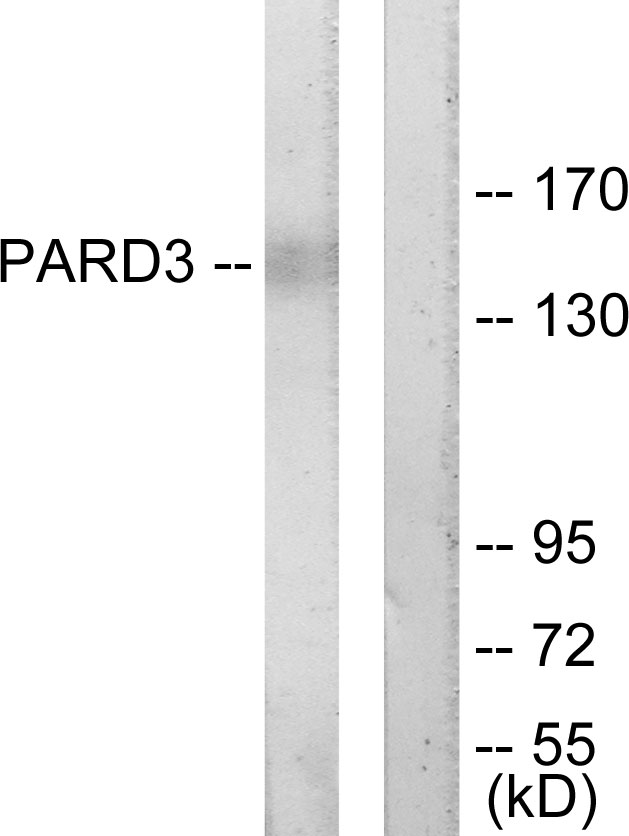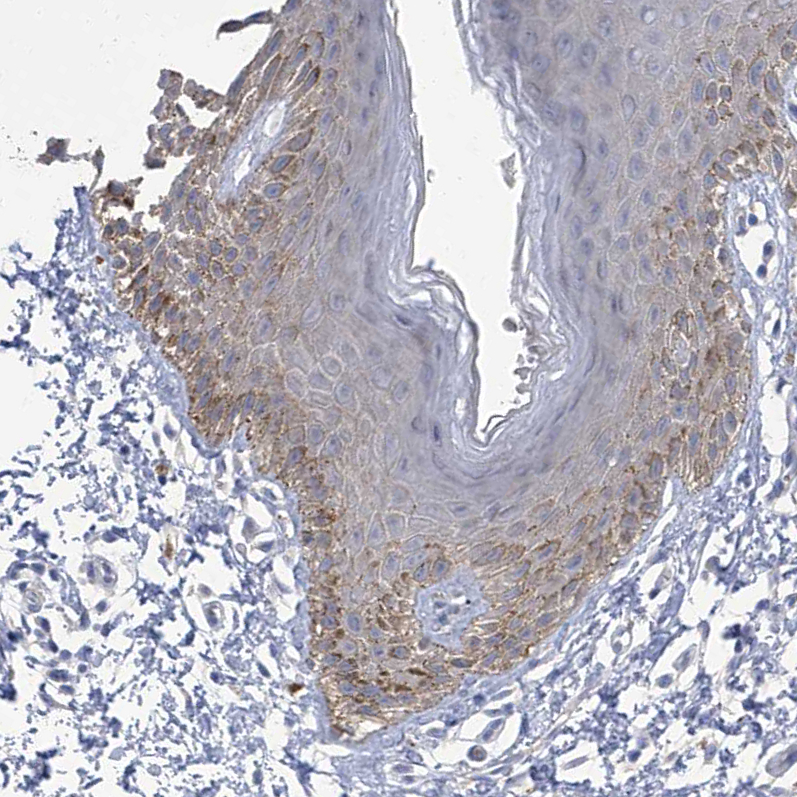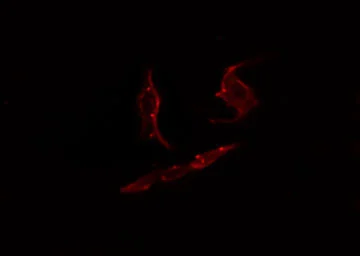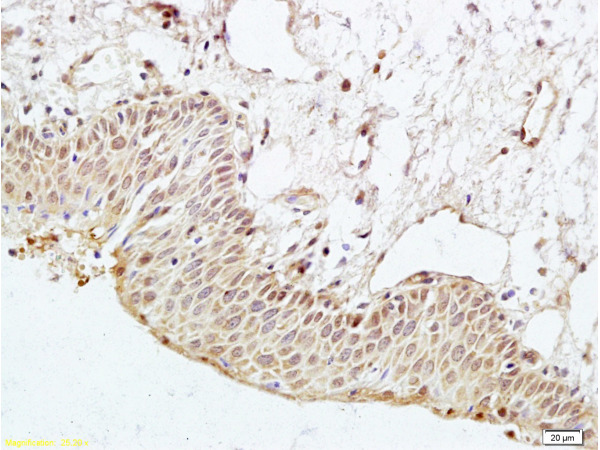
WB analysis of mouse stomach tissue lysate (35ug/lane) using GTX81098 PARD3 antibody, C-term.
PARD3 antibody, C-term
GTX81098
ApplicationsFlow Cytometry, Western Blot, ImmunoHistoChemistry, ImmunoHistoChemistry Paraffin
Product group Antibodies
ReactivityHuman, Mouse
TargetPARD3
Overview
- SupplierGeneTex
- Product NamePARD3 antibody, C-term
- Delivery Days Customer9
- Application Supplier NoteWB: 1:1000. IHC-P: 1:50-1:100. FCM: 1:10-1:50. *Optimal dilutions/concentrations should be determined by the researcher.Not tested in other applications.
- ApplicationsFlow Cytometry, Western Blot, ImmunoHistoChemistry, ImmunoHistoChemistry Paraffin
- CertificationResearch Use Only
- ClonalityPolyclonal
- ConjugateUnconjugated
- Gene ID56288
- Target namePARD3
- Target descriptionpar-3 family cell polarity regulator
- Target synonymsASIP, Baz, PAR3, PAR3alpha, PARD-3, PARD3A, PPP1R118, SE2-5L16, SE2-5LT1, SE2-5T2, partitioning defective 3 homolog, CTCL tumor antigen se2-5, PAR3-alpha, atypical PKC isotype-specific interacting protein, bazooka, par-3 family cell polarity regulator alpha, par-3 partitioning defective 3 homolog, protein phosphatase 1, regulatory subunit 118
- HostRabbit
- IsotypeIgG
- Protein IDQ8TEW0
- Protein NamePartitioning defective 3 homolog
- Scientific DescriptionThis gene encodes a member of the PARD protein family. PARD family members interact with other PARD family members and other proteins; they affect asymmetrical cell division and direct polarized cell growth. Multiple alternatively spliced transcript variants have been described for this gene. [provided by RefSeq, Oct 2011]
- ReactivityHuman, Mouse
- Storage Instruction-20°C or -80°C,2°C to 8°C
- UNSPSC41116161

